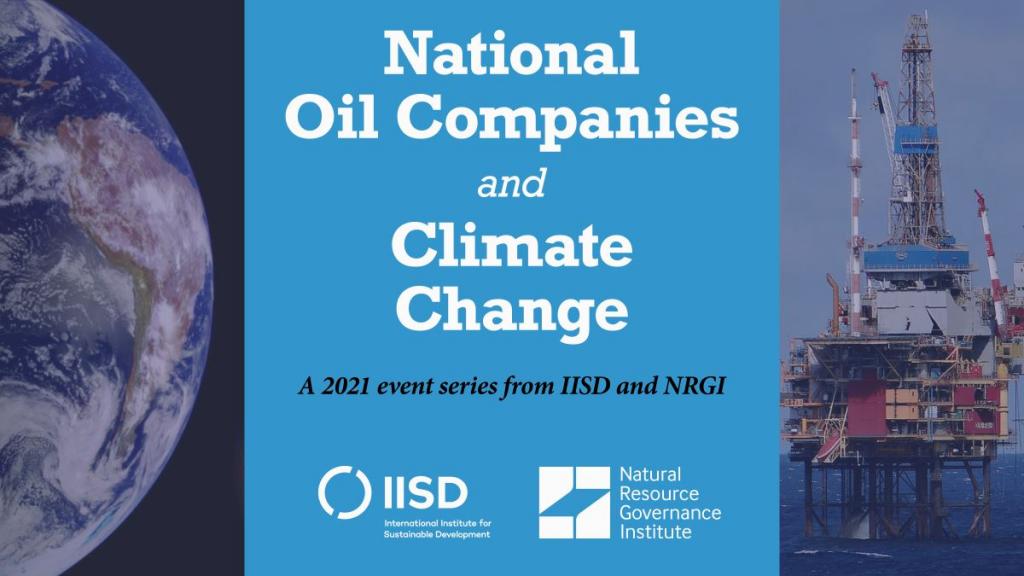National Oil Companies: Climate Change, Economic Challenges, and Potential Responses

National oil companies (NOCs) are navigating uncharted waters. Pemex, Mexico’s state oil enterprise, is far from the cash cow it once was. Companies in new oil producers such as Ghana and Uganda are reexamining their strategies in the face of future market uncertainties. Even Saudi Aramco has seen profits tumble and scaled back investment plans. The world’s essential move toward greener energy places these companies in evermore challenging positions.
Discussants at this event—the first in discussion series National Oil Companies and Climate Change convened by the International Institute for Sustainable Development (IISD) and National Resource Governance Institute (NRGI)—will spell out the major challenges now facing NOCs, their governments, and international climate initiatives. Participants will explore implications of companies’ choices around which projects to pursue—and how to manage them sustainably—on national economies and international climate goals.
While several NOCs have initiated measures to reduce their scope 1 and 2 emissions, fewer have engaged with larger questions about investments in future oil production in a climate-constrained world. The session, consisting of a moderated panel discussion with dedicated time for questions and answers, will examine the drivers of NOC spending on new upstream oil and gas projects, and how governments and NOCs can revitalize governance priorities for this new era.
NOCs vary significantly in their size, capabilities and role in global oil and gas markets, and participants in the session will unpack the prospects facing different types of NOCs. The pathway to more sustainable decisions—on public investments, future production pathways, and adapting companies’ roles in their societies—will look different for different kinds of NOCs. The importance of different NOCs in global climate efforts also varies. This session will dig into these categories, moving beyond generic notions of “good practice” to illuminate concrete reform approaches for governments, investors, and NOCs.